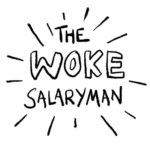Advertisement
Anonymous
Would you choose go for 12x $500 or 6x $1k for DCA into a robo-advisor?
Just received bonus and decided to DCA 6k into a robo advisor. Would you guys go for 12x $500 or 6x $1k? What are the reasons for choosing either?
5
Discussion (5)
Learn how to style your text
Reply
Save
Lin Yun Heng
25 Mar 2021
Senior Analyst at Delphi
Tbh, I won't just be fixated on being so stringent with my DCA but just need to be consistent over the long run. Once you allocate this bonus, what do you do after this? Do you let it sit idle? Or continue to be consistent. But in any case, 12x $500 will be better if you want to stage your investments
Reply
Save
Robin
23 Mar 2021
Administrator at SG
DCA has it's value. The point of DCA is to spread out your money and buy in each month no matter the...
Read 3 other comments with a Seedly account
You will also enjoy exclusive benefits and get access to members only features.
Sign up or login with an email here
Write your thoughts
Related Articles
Related Posts
Related Products

StashAway
4.7
1295 Reviews
StashAway Simple Guaranteed 3.55% p.a. (Guaranteed rate)
Cash Management
INSTRUMENTS
None
ANNUAL MANAGEMENT FEE
None
MINIMUM INVESTMENT
3.5%
EXPECTED ANNUAL RETURN
Mobile App
PLATFORMS

Endowus
4.7
658 Reviews

Syfe
4.6
934 Reviews
Related Posts
Advertisement











Hi Anon,
Great to hear that you received a bonus despite a trying 2020.
If this is going to be your first time investing, it would be prudent to first look at your short term financial planning before investing any amounts at all (i.e. 6 months emergency funds, basic insurances)
Once you've dealt with the planning, there shouldn't be any issues investing the full $6,000 at one go. There's plenty of evidence to show that lump sum investing yields better returns over the long run as compared to DCA.
Sometimes, it's more an emotional decision when it comes to parting with this sum of money. "Will the market drop after I invest?" It seems DCA is a good way to mitigate any short term volatility in market movements.
I'd suggest to go with a lump sum investment of $6,000 if you are young (25-30) and have already set aside your rainy day funds. If you are someone with a little more liabilities and commitments, perhaps $1,000 over 6 months may be better.
$500 over 12 months is really unecessary if you have already planned to invest all of the $6,000 in the first place. You really need to spend time in the market rather than miss out on a good 6 or 11 months of market returns.